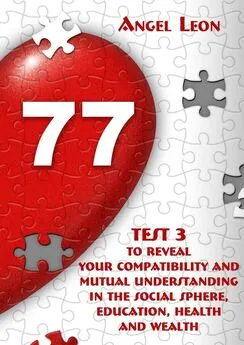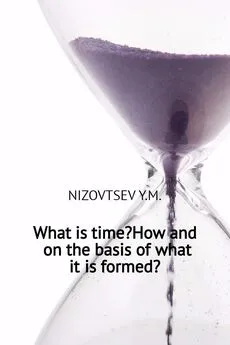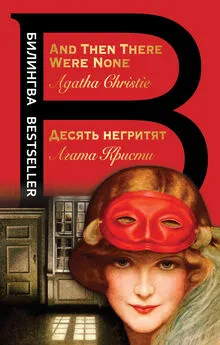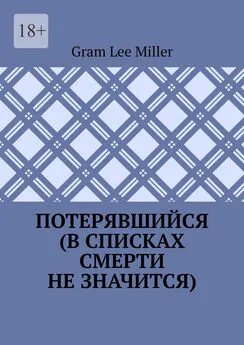Linda Miller - Here and Then
- Название:Here and Then
- Автор:
- Жанр:
- Издательство:неизвестно
- Год:неизвестен
- ISBN:нет данных
- Рейтинг:
- Избранное:Добавить в избранное
-
Отзывы:
-
Ваша оценка:
Linda Miller - Here and Then краткое содержание
Here and Then - читать онлайн бесплатно ознакомительный отрывок
Интервал:
Закладка:
She went back to the kitchen and, without knowing exactly why, reached for the necklace and put it on, even before taking off her jacket. Then, feeling chilled, she returned to the parlor to stand close to the fire.
Rue was fighting back tears of frustration and fear, her forehead touching the mantelpiece, when she heard the distant tinkling of piano keys. She was alone in the house, and she was certain no radio or TV was playing….
Her green eyes widened when she looked into the ornately framed mirror above the fireplace, and her throat tightened: The room reflected there was furnished differently, and was lit with the soft glow of lantern light. Rue caught a glimpse of a plain woman in long skirts running a cloth over the keys of a piano before the vision faded and the room was ordinary again.
Turning slowly, Rue rubbed her eyes with a thumb and forefinger. She couldn’t help thinking of Elisabeth’s letters describing a world like the one she’d just seen, for a fraction of a second, in the parlor mirror.
“You need a vacation,” Rue said, glancing back over her shoulder at her image in the glass. “You’re hallucinating.”
Nonetheless, she made herself another cup of instant coffee, gathered up the letters and went to sit cross-legged on the hooked rug in front of the fireplace. Once again, she read and analyzed every word, looking for some clue, anything that would tell her where to begin the search for her cousin.
Thing was, Rue thought, Bethie sounded eminently sane in those letters, despite the fact that she talked about stepping over a threshold into another time in history. Her descriptions of the era were remarkably authentic; she probably would have had to have done days or weeks of research to know the things she did. But the words seemed fluent and easy, as though they’d flowed from her pen.
Finally, no closer to finding Elisabeth than she had been before, Rue set the sheets of writing paper aside, banked the fire and climbed the front stairway to the second floor. She would sleep in the main bedroom—many of Elisabeth’s things were still there—and maybe by some subconscious, instinctive process, she would get a glimmer of guidance concerning her cousin’s whereabouts.
As it was, she didn’t have the first idea where to start.
She showered, brushed her teeth, put on a nightshirt and went to bed. Although she had taken the necklace off when she undressed, she put it back on again before climbing beneath the covers.
The sheets were cold, and Rue burrowed down deep, shivering. If it hadn’t been for the circumstances, she would have been glad to be back in this old house, where all the memories were good ones. Like Ribbon Creek, the Montana ranch she’d inherited from her mother’s parents, Aunt Verity’s house was a place to hole up when there was an important story to write or a decision to work out. She’d always loved the sweet, shivery sensation that the old Victorian monstrosity was haunted by amicable ghosts.
As her body began to warm the crisp, icy sheets, Rue hoped those benevolent apparitions were hanging around now, willing to lend a hand. “Please,” she whispered, “show me how to find Elisabeth. She’s my cousin and the closest thing I ever had to a sister and my very best friend, all rolled into one—and I think she’s in terrible trouble.”
After that, Rue tossed and turned for a while, then fell into a restless sleep marred by frightening dreams. One of them was so horrible that it sent her hurtling toward the surface of consciousness, and when she broke through into the morning light, she was breathing in gasping sobs and there were tears on her face.
And she could clearly hear a woman’s voice singing, “Shall We Gather at the River?”
Her heart thundering against her chest, Rue flung back the covers and bounded out of bed, following the sound into the hallway, where she looked wildly in one direction, then the other. The voice seemed to be rising through the floorboards and yet, at the same time, it came from beyond the sealed door of the outside wall.
Rue put her hands against the wooden panel, remembering Elisabeth’s letters. There was a room on the other side, Bethie had written, a solid place with floors and walls and a private stairway leading into the kitchen.
“Who’s there?” Rue called, and the singing immediately stopped, replaced by a sort of stunned stillness. She ran along the hallway, peering into each of the three bedrooms, then hurried down the back stairs and searched the kitchen, the utility room, the dining room, the bathroom and both parlors. There was no one else in the house, and none of the locks on the windows or doors had been disturbed.
Frustrated, Rue stormed over to the piano on which she and Elisabeth had played endless renditions of “Heart and Soul,” threw up the cover and hammered out the first few bars of “Shall We Gather at the River?” in challenge.
“Come on!” she shouted over the thundering chords.
“Show yourself, damn it! Who are you? What are you?”
The answer was the slamming of a door far in the distance.
Rue left the piano and bounded back up the stairs, because the sound had come from that direction. Reaching the sealed door, she grabbed the knob and rattled the panel hard on its hinges, and surprise rushed through her like an electrical shock when it gave way.
Muttering an exclamation, Rue peered through the opening at the charred ruins of a fire. A trembling began in the cores of her knees as she looked at blackened timbers that shouldn’t have been there.
It was a moment before she could gather her wits enough to step back from the door, leaving it agape, and dash wildly down the front stairs. She went hurtling out through the front door and plunged around to the side, only to see the screened sun porch just where it had always been, with no sign of the burned section.
Barely able to breathe, Rue circled the house once, then raced back inside and up the stairs. The door was still open, and beyond it lay another time or another dimension.
“Elisabeth!” Rue shouted, gripping the sooty doorjamb and staring down through the ruins.
A little girl in a pinafore and old-fashioned, pinchy black shoes appeared in the overgrown grass, shading her eyes with a small, grubby hand as she looked up at Rue. “You a witch like her?” the child called, her tone cordial and unruffled.
Rue’s heartbeat was so loud that it was thrumming in her ears. She stepped back, then forward, then back again. She stumbled blindly into her room and pulled on jeans, a T-shirt, socks and sneakers, not taking the time to brush her sleep-tangled hair, and she was climbing deftly down through the ruins before she had a moment to consider the consequences.
The child, who had been so brave at a distance, was now backing away, stumbling in her effort to escape, her freckles standing out on her pale face, her eyes enormous.
Great, Rue thought, half-hysterically, now I’m scaring small children.
“Please don’t run away,” she managed to choke out. “I’m not going to hurt you.”
The girl appeared to be weighing Rue’s words, and it seemed that some of the fear had left her face. In the next instant, however, a woman came running around the corner of the house, shrieking and flapping her apron at Rue as though to shoo her away like a chicken.
“Don’t you dare touch that child!” she screeched, and Rue recognized her as the drab soul she’d glimpsed in the parlor mirror the night before, wiping the piano keys.
Rue had withstood much more daunting efforts at intimidation during her travels as a reporter. She held her ground, her hands resting on her hips, her mind cataloging material so rapidly that she was barely aware of the process. The realization that Elisabeth had been right about the necklace and the door in the upstairs hallway and that she was near to finding her, was as exhilarating as a skydive.
“Where did you come from?” the plain woman demanded, thrusting the child slightly behind her.
Rue didn’t even consider trying to explain. In the first place, no one would believe her, and in the second, she didn’t understand what was going on herself. “Back there,” she said, cocking a thumb toward the open doorway above. That was when she noticed that her hands and the knees of her jeans were covered with soot from the climb down through the timbers. “I’m looking for my Cousin Elisabeth.”
“She ain’t around,” was the grudging, somewhat huffy reply. The woman glanced down at the little girl and gave her a tentative shove toward the road. “You run along now, Vera. I saw Farley riding toward your place just a little while ago. If you meet up with him, tell him he ought to come on over here and have a talk with this lady.”
Vera assessed Rue with uncommonly shrewd eyes—she couldn’t have been older than eight or nine—then scampered away through the deep grass.
Rue took a step closer to the woman, even though she was beginning to feel like running back to her own safe world, the one she understood. “Do you know Elisabeth McCartney?” she pressed.
The drudge twisted her calico apron between strong, work-reddened fingers, and her eyes strayed over Rue’s clothes and wildly tousled hair with unconcealed and fearful disapproval. “I never heard of nobody by that name,” she said.
Rue didn’t believe that for a moment, but she was conscious of a strange and sudden urgency, an instinct that warned her to tread lightly, at least for the time being. “You haven’t seen the last of me,” she said, and then she climbed back up through the charred beams to the doorway, hoping her own world would be waiting for her on the other side. “I’ll be back.”
Her exit was drained of all drama when she wriggled over the threshold and found herself on a hard wooden floor decorated with a hideous Persian runner. The hallway in the modern-day house was carpeted.
“Oh, no,” she groaned, just lying there for a moment, trying to think what to do. The curtain in time that had permitted her to pass between one century and the other had closed, and she had no way of knowing when—or if—it would ever open again.
It was just possible that she was trapped in this rerun of Gunsmoke—permanently.
“Damn,” she groaned, getting to her feet and running her hands down the sooty denim of her jeans. When she’d managed to stop shaking, Rue approached one of the series of photographs lining the wall and looked up into the dour face of an old man with a bushy white beard and a look of fanatical righteousness about him. “I sure hope you’re not hanging around here somewhere,” she muttered.
Next, she cautiously opened the door of the room she’d slept in the night before—only it wasn’t the same. All the furniture was obviously antique, yet it looked new. Rue backed out and proceeded along the hallway, her sense of fascinated uneasiness growing with every passing moment.
“Through the looking glass,” she murmured to herself. “Any minute now, I should meet a talking rabbit with a pocket watch and a waistcoat.”
“Or a United States marshal,” said a deep male voice.
Rue whirled, light-headed with surprise, and watched in disbelief as a tall, broad-shouldered cowboy with a badge pinned to his vest mounted the last of the front stairs to stand in the hall. His rumpled brown hair was a touch too long, his turquoise eyes were narrowed with suspicion, and he was badly in need of a shave.
This guy was straight out of the late movie, but his personal magnetism was strictly high-tech.
“What’s your name?” he asked in that gravelly voice of his.
Rue couldn’t help thinking what a hit this guy would be in the average singles’ bar. Not only was he good-looking, in a rough, tough sort of way, he had macho down to an art form. “Rue Claridge,” she said, just a little too heartily, extending one hand in friendly greeting.
Читать дальшеИнтервал:
Закладка:










